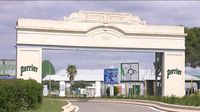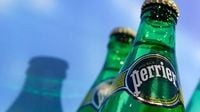The prefecture of Gard has issued a formal notice to Nestlé Waters, requiring the company to remove its controversial microfiltration system from its Perrier mineral water within two months. This decision, announced on May 7, 2025, is critical as it directly impacts the brand's ability to maintain its prestigious designation as "natural mineral water." The prefecture's directive comes amid ongoing scrutiny over Nestlé's water purification practices, which have raised significant health and regulatory concerns.
According to the prefecture, a decision regarding Nestlé's application to renew its authorization to exploit its boreholes in Vergèze, where Perrier is sourced, must be made before August 7, 2025. The urgency of this matter is underscored by the fact that approximately one thousand jobs are at stake at the Vergèze plant, which has been a cornerstone of the local economy since 1863.
Senator Laurent Burgoa confirmed that a senatorial report on the situation will be published on May 19, 2025, following six months of hearings. He emphasized that the report will provide recommendations to ensure that mineral waters can continue to be produced legally and safely. Carole Delga, the president of the Occitanie region, expressed her commitment to supporting Nestlé and its employees during this transitional period. "We have two months to find solutions that will allow compliance with the regulations," Delga stated, highlighting the need for collaboration between Nestlé, local officials, and stakeholders.
The prefecture's action stems from Nestlé's admission in early 2024 that it had utilized prohibited treatments, including ultraviolet light and activated carbon, before switching to a microfiltration system with a 0.2-micron cartridge. This system is now deemed non-compliant with European regulations governing natural mineral water, which stipulate that such waters must maintain their "original purity" and cannot undergo any treatment that alters their microbial content.
On April 9, 2025, Laurent Freixe, the director general of Nestlé, revealed before a senatorial commission that hydrogeologists consulted by the prefecture had issued a negative opinion on the company's ability to continue exploiting its five boreholes in Vergèze. This negative assessment adds to the pressure on Nestlé as it seeks to resolve these compliance issues.
The consumer advocacy group Foodwatch has welcomed the prefecture's decision, calling it a step in the right direction. They hope that the ongoing judicial investigation will shed light on the actions of the multinational corporation and its executives. Senator Burgoa echoed this sentiment, stating that the decision is responsible and necessary to hold Nestlé accountable for its practices.
In light of the current challenges, Nestlé has indicated its willingness to comply with the prefect's request. The company has stated that it will seek technical solutions to adapt its microfiltration system in a way that aligns with regulatory standards. Muriel Lienau, president of Nestlé Waters & Premium Beverages, emphasized that they are committed to finding solutions tailored to the specific needs of their various production sites, including Perrier.
Despite the controversy, the prefect of Gard, Jérôme Bonet, has assured the public that the Perrier bottles currently on the market do not pose any health risks. However, the economic implications of this situation are significant, particularly for the employees of the Vergèze plant and their families in a region where job opportunities are scarce.
In a related development, Nestlé has already begun to pivot its operations by reallocating two boreholes at the Vergèze site to produce its new brand, Maison Perrier, which does not require the natural mineral water designation. This strategic move reflects the company's efforts to adapt to the changing regulatory landscape while still maintaining a presence in the beverage market.
The situation surrounding Perrier's mineral water designation has sparked a broader conversation about the future of bottled water in France. With increasing scrutiny on water quality and corporate practices, stakeholders are calling for greater transparency and accountability from major players in the industry.
As the deadline approaches for Nestlé to remove its microfiltration system, the eyes of the public and regulators alike will be focused on the company's next steps. The outcome of this situation could have far-reaching implications not only for Perrier but also for the bottled water industry as a whole.
With the senatorial report set to be released soon, it remains to be seen how Nestlé will navigate these challenges and whether it can restore confidence in its products while ensuring compliance with the stringent regulations governing natural mineral water.





